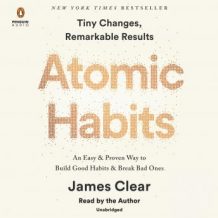Thinking in Bets: Making Smarter Decisions When You Don’t Have All the Facts Audiobook
Thinking in Bets: Making Smarter Decisions When You Don’t Have All the Facts Audiobook
- Annie Duke
- Penguin Audio
- 2018-02-06
- 6 h 51 min
Summary:
Poker champion turned business expert Annie Duke teaches you how to get comfortable with doubt and make smarter decisions because of this.
In Super Dish XLIX, Seahawks coach Pete Carroll produced probably one of the most controversial calls in football history: With 26 mere seconds remaining, and trailing by four at the Patriots’ one-yard line, he needed a pass rather than a hand off to his star running back. The pass was intercepted and the Seahawks lost. Critics called it the dumbest play ever sold..Read More on the subject of Thinking in Wagers: Building Smarter Decisions When YOU DO NOT HAVE All the Details But was the decision really that bad? Or did Carroll make an excellent move that was ruined by misfortune?
Even the best decision doesn’t yield the best outcome each and every time. There’s usually an element of good luck that you can’t control, and there’s always information that’s hidden from watch. So the key to long-term achievement (and avoiding stressing yourself to loss of life) is to believe in bets: How sure am I? What are the possible ways things could turn out? What decision has the highest odds of achievement? Did I property in the unlucky 10% in the strategy that functions 90% of that time period? Or is definitely my achievement due to dumb good luck rather than good decision making?
Annie Duke, a former World Group of Texas holdem champ turned business specialist, draws on examples from business, sports, politics, and (obviously) poker to share tools anyone may use to embrace uncertainty and make better decisions. For most people, it’s difficult to say ‘I’m not really sure’ in a global that ideals and, even, benefits the looks of certainty. But professional poker players are more comfortable with the actual fact that great decisions don’t generally lead to great results and bad decisions don’t generally lead to poor outcomes.
By shifting your thinking from a need for certainty to a goal of accurately assessing everything you know and what you don’t, you’ll be less vulnerable to reactive emotions, knee-jerk biases, and destructive habits in your decision making. You’ll are more confident, relaxed, compassionate and successful over time.






